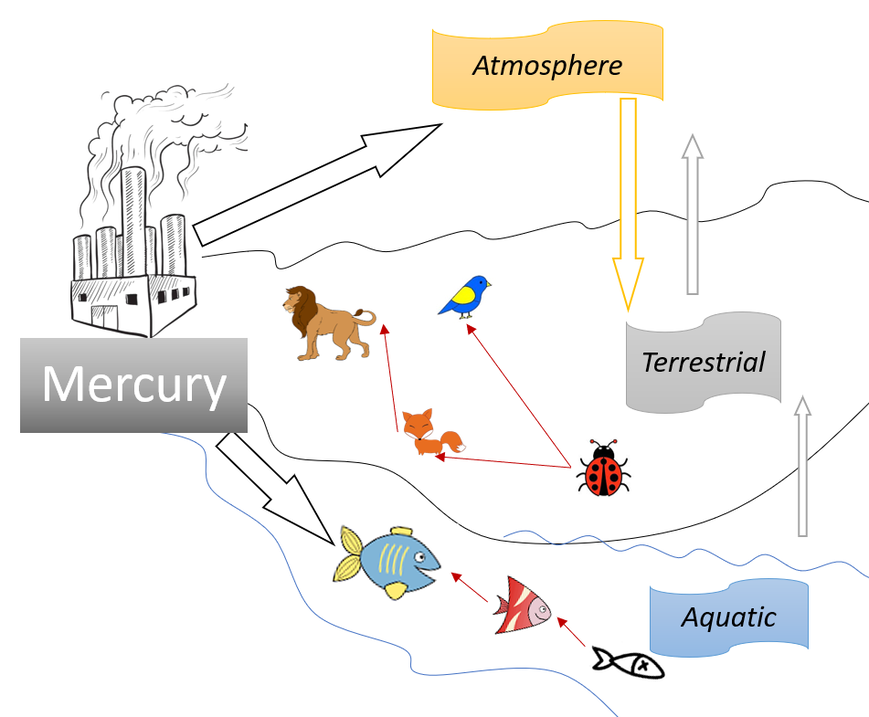Teaming for Interdisciplinary Research Pre-Seed Program
Tracking Mercury Pollution Sources: Developing an Analytical Method for Measuring Stable Mercury Isotopes in Environmental and Human Biological Samples

Tracking Mercury Pollution Sources: Developing an Analytical Method for Measuring Stable Mercury Isotopes in Environmental and Human Biological Samples

Mercury has been considered one of the major environmental concerns but tracking the source remains difficult because Hg disperses in the atmosphere from sources around the globe. This interdisciplinary project team (HG-ISOTOPE) aims to optimize the technological development and analytical methods to measure stable mercury (Hg) isotopes for the purpose of tracking sources of Hg in the environment Specifically, we propose to assemble an interdisciplinary team of scientists with diverse backgrounds in analytical chemistry, applied isotope studies, ecology, earth and environmental sciences to interact collaboratively to achieve the following objectives: (A) optimize an experimental online Cold Vapor Generation System (CVGS) that will be installed at the Center for Applied Isotope Studies (CAIS) to improve its performance and stability; (B) utilize CVGS to develop and improve new analytical techniques for measurement of stable Hg isotopes; (C) employ CVGS in combination with multi-collector inductively coupled plasma mass spectrometry (MC-ICPMS) to track Hg sources; (D) enhance research collaborations among colleagues who have interests in isotopic studies and who have archived samples appropriate for such investigations; and (F) develop collaborative teams from the Savannah River Ecology Lab and the main UGA campus (e.g., CAIS, Department of Geology) to pursue external fundings that utilize this new technology. We expect that with this initiative, UGA will develop state-of-the-art capabilities for the measurement of Hg isotopes in different sample matrices, providing powerful and competitive new approaches for studies of the fate, exposure pathways, and environmental impacts of Hg.
Step 1: Optimize the technology. The use of online CVGS to introduce samples for quantification of Hg stable isotopes with MC-ICPMS is a novel technique, so many technical and research questions remain unresolved. Currently, only a few labs worldwide have utilized this technology, generally using customized CGVS apparatus that needs to be more consistent in construction, connectivity, and efficiency. The HG-ISOTOPE team will make an appropriate design of the CVGS so it can connect to the MC-ICPMS and produce accurate, precise, and repeatable measurements of Hg isotopes.
Step 2: Establish robust standard operating procedures (SOPs). After the technology optimization, a novel set of SOPs must be developed for accurate and repeatable measurements using CVGS and MC-ICPMS. Critically, these SOPs must include precise methods for sample handling and introduction, system calibration, signal adjustment, and QCQA tests.
Step 3: Test the SOPs with samples. The preserved mass-dependent and independent isotope fractionations in Hg make it possible to trace Hg isotopes to their sources and study Hg behaviors in the environment. Archived samples from the Central Savannah River Area and Mt Etna volcano will be selected to test this newly developed technology and SOPs. We believe a project that studies Hg sources in environmental samples would prove the concept for this new technological capability and help explain Hg behavior among environmental compartments.
Team Lead
Olin Rhodes
rhodes@srel.uga.edu
College: Odum School of Ecology
Department: Savannah River Ecology Lab
Team Members
Angela Lindell
lindell@srel.uga.edu
College: n/a
Department: Savannah River Ecology Lab
Breann Spencer
Breann.Spencer@uga.edu
College: n/a
Department: Savannah River Ecology Lab
Xiaoyu Xu
xiaoyuxu@uga.edu
College: Warnell School of Forestry and Natural Resources
Department: Savannah River Ecology Lab
Carla Hadden
hadden@uga.edu
College: n/a
Department: Center for Applied Isotope Studies
Sarah Jantzi
SARAH.JANTZI@uga.edu
College: na
Department: Center for Applied Isotope Studies
Mattia Pistone
Mattia.Pistone@uga.edu
College: Franklin College of Arts and Sciences
Department: Department of Geology
